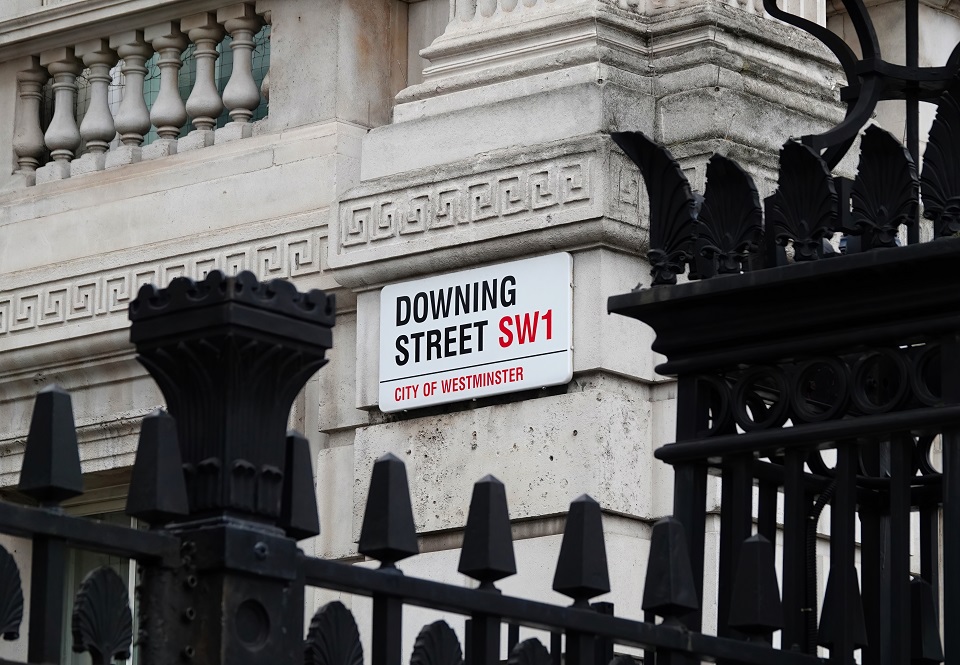Comment | 'long-term picture for economy looks bleak'

By Nick O’Donovan, Senior Lecturer, Political Economy and Public Policy, Keele University. This article first appeared in the Stoke Sentinel as a Personally Speaking column in November 2023.
Last week's Autumn Statement was meant to be a good news story. The Chancellor had found the money to increase working-age benefits in line with inflation, with pensioners seeing an even larger increase in their incomes come next April. Jeremy Hunt even had cash left over to reduce our National Insurance contributions as part of "the biggest package of tax cuts to be implemented since the 1980s".
The reality was somewhat different. The Office for Budget Responsibility, the independent watchdog responsible for overseeing the government's finances, pointed out that the reason the Chancellor had more money to spend was not because of economic growth, but rather because of inflation.
As prices rise, people pay more VAT on their shopping and more tax on their earnings. Income tax payments in particular have risen sharply, as a result of the decision taken back in March 2021 to freeze the thresholds at which individuals begin to pay higher percentage rates.
In effect, the tax giveaways announced by Jeremy Hunt last week simply offset some (but not all) of the tax rises introduced back when Rishi Sunak was Chancellor.
Still, the announcements on benefits and pensions will be welcomed by many households in North Staffordshire. Failure to increase welfare in-line with inflation would have made the cost-of-living crisis even worse, forcing more families to rely on foodbanks such as the Trussell Trust – though it is important to note that the additional money will not be paid out until after the winter months.
The Autumn Statement also contained good news for the local manufacturing sector. "Full expensing of capital expenditure" may not grab as many headlines as national insurance cuts or benefit increases, but it effectively means larger incentives for businesses to invest in plant and machinery. Taken in isolation, these tax incentives are unlikely to transform the local economy. Manufacturers still face high energy prices, difficulties recruiting staff with the skills they need, and post-Brexit barriers to export. Nevertheless, these changes are a step in the right direction.
Unfortunately, tax revenues have not risen enough to compensate everyone for the effects of higher inflation. Despite rising prices, the Chancellor did not set aside additional money for public services and for public sector workers. In effect, this amounts to a further round of austerity cuts, similar in scale to the cuts made in the early 2010s.
This means that 2024 could see public services once again disrupted by strikes. Looking further ahead, it is not clear whether these real-term cuts can even be delivered. Assuming government decides to ringfence funds for the NHS and schools, the largest cuts are likely to fall on "unprotected" areas such as local government.
Money for anything from filling in potholes to funding social care is already in short supply. Over the last five years, the local authorities that have issued section 114 notices (the local government equivalent of filing for bankruptcy) have tended to do so because of failed investments or errors resulting in expensive legal claims. To date, councils in our region have managed to keep their heads above water. Nevertheless, it is not clear how even well-run local authorities will be able to make ends meet if their spending continues to be squeezed.
Despite introducing some sensible policy changes and providing some relief to households hit by the cost-of-living crisis, the longer-term picture revealed by the Autumn Statement is a bleak one. The tax burden is already rising as a share of national income. If the renewed round of austerity that the government has pencilled in for after the next election does not prove workable, then further tax rises look more likely than new tax cuts, whatever the Chancellor's stated preferences.
Most read
- Astronomer from Keele helps take the first close-up picture of a dying star outside our galaxy
- Keele University signs official partnership with Cheshire College South & West
- Keele partners with regional universities to tackle maternity inequalities across the West Midlands
- Keele Business School MBA ranks in Top 40 for sustainability in prestigious global ranking
- Keele trains next generation of radiographers using virtual reality in regional first
Contact us
Andy Cain,
Media Relations Manager
+44 1782 733857
Abby Swift,
Senior Communications Officer
+44 1782 734925
Adam Blakeman,
Press Officer
+44 7775 033274
Ashleigh Williams,
Senior Internal Communications Officer
Strategic Communications and Brand news@keele.ac.uk.

